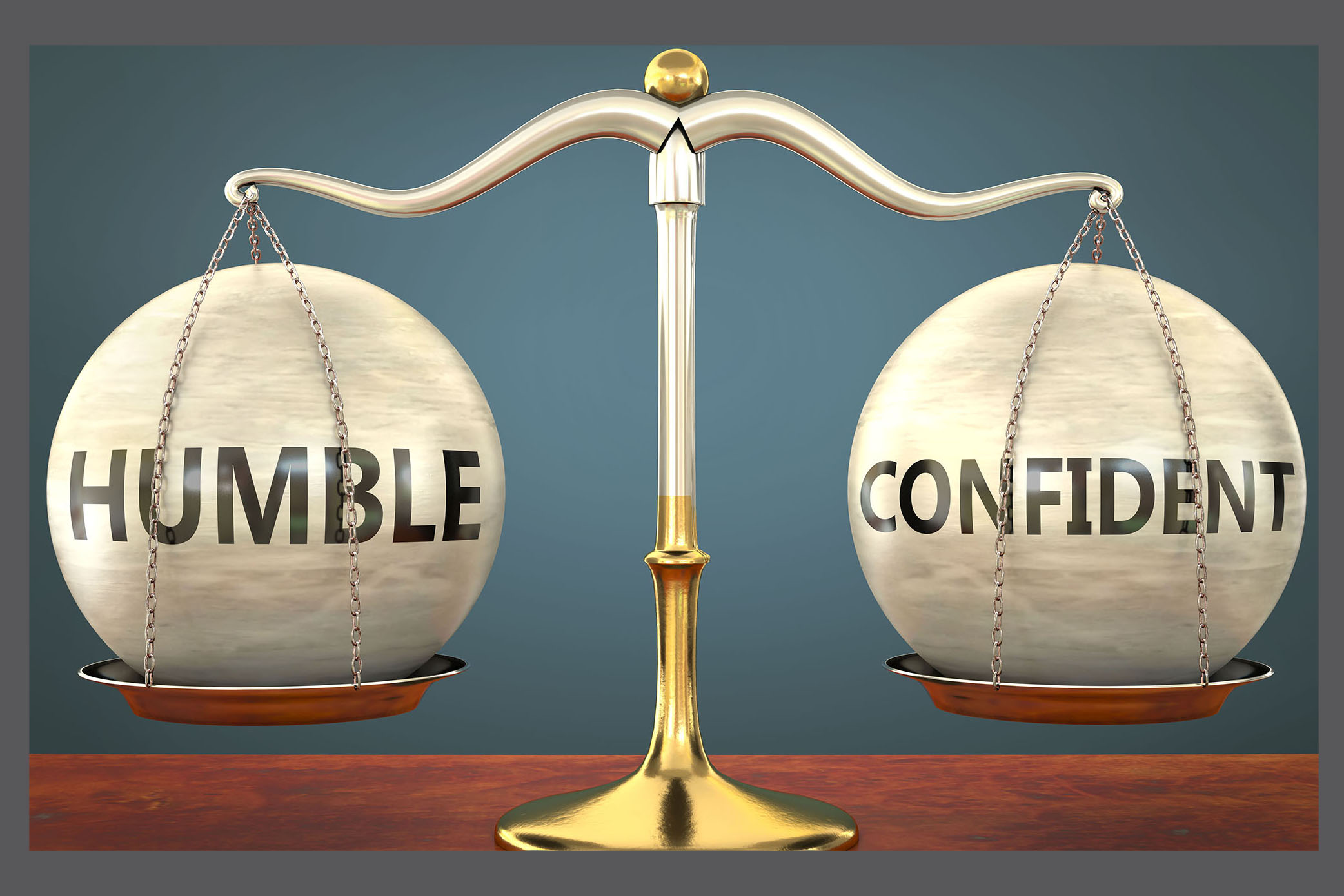Any person in a leadership position needs to have and demonstrate confidence. People look to their leaders to make decisions, lead change and make tough calls and that requires confidence. But the best leaders also have a value that is less talked about in the world of leadership, and that is humility. So how does a leader find the balance and become confidently humble? Find out in this expert from my book A Leadership Kick in the Ass.
Overconfidence
When we believe in ourselves more than we should, when we put more stock in our skills and capabilities than they actually warrant, when we start all tasks from the presumption that “I got this,” overconfidence begins to distort our leadership. Overconfidence causes us to make decisions impulsively fast. Overconfidence causes us to trust our judgment over the judgment of others. And overconfidence causes us to be dismissive toward those whom we perceive as slowing us down or not having the power to further our goals.
The most obvious and embellished example of overconfidence is the Pighead leader, who often steps over (or on!) people they view as getting in the way of their goals. Their motto is, “If you’re not part of the bulldozer, you’re part of the pavement.” Butt kicks stemming from overconfidence are the natural blowback of selfish leadership, often coming in the form of backstabbing or betrayal by the people we have led (or, more often, misled). As Julius Caesar said, “Et Tu, Brute?”
Underconfidence
When we are preoccupied with the potential for failure at the start of every task, when we hyperfocus on risk mitigation, and when we continually delay decisions by deferring them for others’ approval, underconfidence is at work. Underconfidence causes us to be timid, hesitant, and un-original. When we lack confidence, we don’t trust our ideas, much less fight for them. We cede to the ideas, perspectives, and preferences of others. Consequently, we lose the opportunity to shape decisions and effect change.
It is underconfidence, as you might have guessed, that causes the Weakling leader to lack a backbone. The Weakling leader defends neither himself nor those he is leading (or misleading!). Butt kicks stemming from prolonged under-confidence are often connected to the loss of respect among your bosses, your peers, those you’re leading, and ultimately, yourself. When you don’t take steps to build your own confidence, you are disrespecting yourself. Collectively, the hesitancy, timidity, indecision, and lack of respect caused by underconfidence add up to the loss of both leadership potency and relevance.
Confidently Humble
A leader’s choice of how to lead needs to take into account what followers will follow. Followers won’t follow leaders who lead through intimidation and who don’t care about them. They also won’t follow weakness and cowardice. Most especially, they won’t follow leaders who diminish them and make them feel small. What they will follow is a leader who embodies strong values, paints a clear and hopeful vision of the future, acts with reasonability and composure, solicits and acts on their input, and makes people feel proud of themselves. Followers follow leaders who are confidently humble.
For our leadership to be assertive, decisive, and firm, we need to have confidence. For our leadership to be authentic, giving, and supportive, we need to have humility. Confidence and humility are complementary and counterbalancing forces that fortify the potency of leadership. When our actions are directed by confidence and humility, we are truly operating out of our best selves. The leadership ideal, then, is to become a leader who is both highly confident and genuinely humble. You’ve gotten to this place when you respect those you lead as much as you respect yourself.
What does a confidently humble leader look like?
What does a confidently humble leader look like? First, they are comfortable in their skin. That comfort stems from the self-respect that seasoning and experience provide. They know that they have earned their place. They have capitalized on the lessons they learned from all of the butt kickings they’ve had along the way. Their self-worth doesn’t come from what others think about them; it comes from living in alignment with a value system that they honor and uphold. Principals matters to them, providing a source of strength and guiding their decisions and choices.
The confidently humble leader states their views assertively and constructively, not to trump others, but to add their perspective. When situations require, they can be forceful and direct, but never in a way that is demeaning toward others. To them, people are not objects. The people they are leading make the job meaningful and worthwhile, and their growth and development are how they assess their effectiveness. The confidently humble leader knows that they don’t have all the answers, and doesn’t expect themself to. They are eager to get the input, perspective, and help of the people they are leading and know that they are eager to give it. Leadership isn’t threatened by strong opinions or personalities. Above all, they value people who are candid, thoughtful, and authentic. They, too, are all those things.



